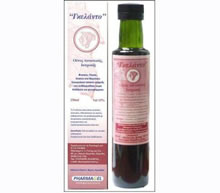
Dictionary of Allergies .. Asthma and the month of birth
4520 children with asthma in Manchester (U.K.) born between 1964 and 1979 had an analysis of the
month of birth. There was a statistically significant excess of asthmatic births in certain months. The explanation for these excesses is not clear. The peak months were different from year to year. Asthma may not be a good model to test the theory of infantile sensitization in allergens, because of the numerous possible causative allergens. Mothers cannot choose a particular season of birth if they wish to avoid having asthmatic children [1].
A comparison of the date of birth of 1501 adult patients with severe seasonal respiratory allergy (allergic rhinitis or bronchial asthma) due to parietaria, olive, and grass pollens with the expected births within 2,020,420 births in South Greece during the same period, was performed. The relative risk for developing respiratory allergy was characteristically increased in those born in a specific period of time different for each pollen. The relative risk for parietaria was increased (1.47) in those born in March; for olive it was 1.6 for May; 1.2 for April; and 1.4 for March, while the relative risk for grasses was 1.2 in those born in June and July.[2]
1. David, T.J., Beards, S.C.: Asthma and the month of birth. Clin.
Allergy 15, No. 4, p. 891, 1985.
2. Vovolis V, Grigoreas C, Galatas I, Vourdas D. Is month of birth a risk factor for subsequent development of pollen allergy in adults? Allergy Asthma Proc. 1999 Jan-Feb;20(1):15-22
Γκέλης Ν.Δ. - Λεξικό Αλλεργίας - Εκδόσεις ΒΕΛΛΕΡOΦΟΝΤΗΣ - Κόρινθος 2013
Gelis Ν.D. - Dictionary of Allergies - VELLEROFONTIS Publications - Corinth 2013




